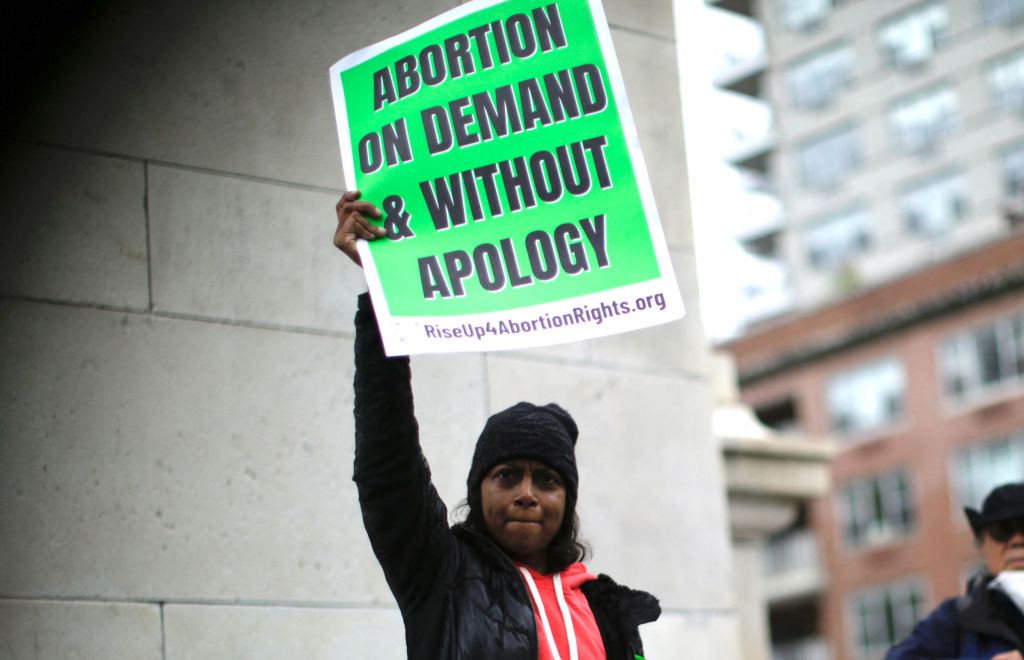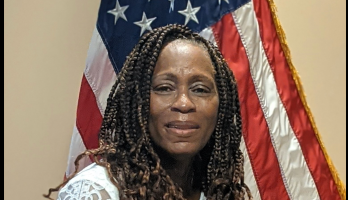Abortion A Key Issue For Black Women Voters, New Poll Finds

[ad_1]

Source: KENA BETANCUR / Getty
Black women are concerned about the future of abortion rights as the 2024 presidential election approaches, according to a new poll published by KFF March. 7.
Inside the new study, 28% of Black women said that abortion rights and access were the most important issues when deciding who to vote for president in November.
Sixteen percent of all female voters consider abortion as a key factor ahead of the election, the KFF poll found. This sentiment was echoed by approximately one-fifth of other significant voting groups, including Democratic women (22%), women residing in states where abortion is prohibited (19%), those planning to vote for President Biden (19%), and women of reproductive age (ages 18 to 49) (17%). Among these groups, at least two-thirds advocate for the legalization of abortion in all or most cases, KFF noted.
Why is abortion a key issue for Black women voters?
Abortion is often a key issue for Black women voters due to a combination of historical, social, and political factors. Black women have long been at the forefront of advocating for reproductive justice, which encompasses not just the right to abortion but also broader issues such as access to contraception and maternal healthcare. These issues compounded when Roe V. Wade was overturned in June 2022, giving states the right to control abortion access individually.
Black women are three times more likely to die from pregnancy than their white counterparts, according to the National Partnership For Women & Families. Historically, Black women have faced disproportionately higher rates of pregnancy complications, including conditions like hypertension, preeclampsia, and hemorrhage. They also experience the highest rate of cesarean section, reaching 36 percent even in low-risk births. This disparity is largely attributed to medical coercion and systemic inequities within the healthcare system.
“Compared to white women, the incidence of severe maternal morbidity for Black women was 166 percent higher from 2012 to 2015,” the NPWF noted.
A 2020 study from the Centers for Disease Control and Prevention (CDC) found that Black women between the ages of 15 and 44 experience abortions at higher rates compared to other ethnic groups, receiving the procedure at a rate of 24.4 abortions per 1,000 births. For Hispanic women, the rate is 11.4 abortions per 1,000 births, 6.2 abortions per 1,000 for non-Hispanic White women; and 12.7 abortions per 1,000 women of other races or ethnicities in the same age range.
In the past year, over 61% of Black women who have recently given birth resided in states where abortion is banned. This figure surpasses the overall rate of 50% among all women and the 53 % rate among white women.
Despite the diversity and complexity within Black America, a significant portion, approximately 56%, of the nation’s Black population resides in the Southern region. Consequently, many Black mothers find themselves living in states where access to comprehensive reproductive healthcare, including abortion services, is restricted or limited.
The race could change at any moment, but right now Donald Trump appears to be the Republican nominee for his party, following former South Carolina Gov. Nikki Haley’s departure from the presidential race on March 6. President Joe Biden and Trump swept through Super Tuesday races nationwide, inching closer to securing their respective party nominations as they prepare for what seems to be an inevitable rematch in November’s election.
SEE ALSO:
Trump Compares Migrants To ‘Hannibal Lecter,’ Says They Speak Languages No One In America Knows
‘Like The Wild West:’ Trump White House Doctors Allegedly Prescribed Drugs With No Oversight
[ad_2]
Source link

